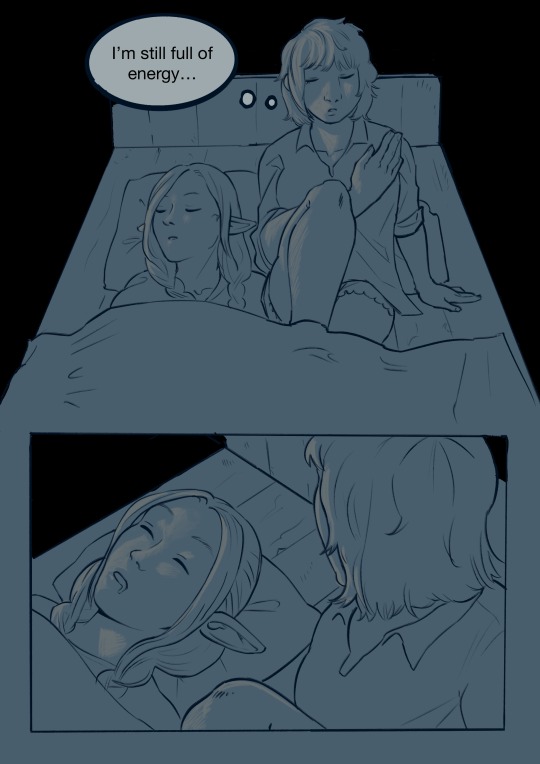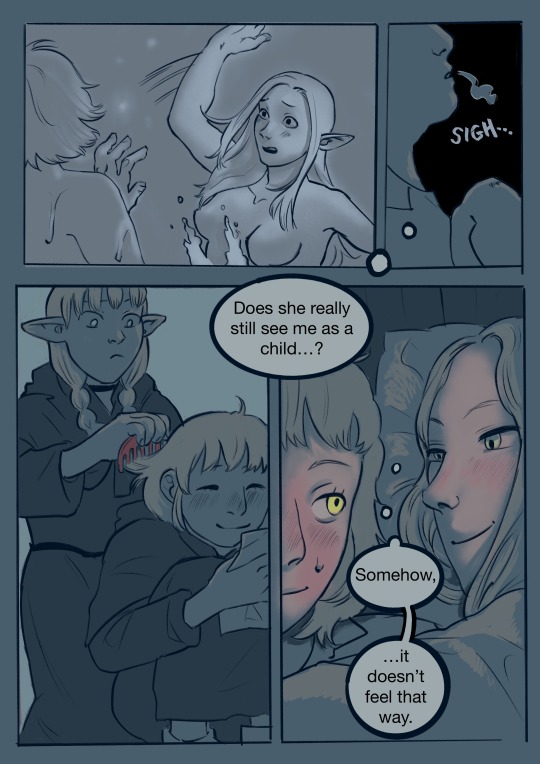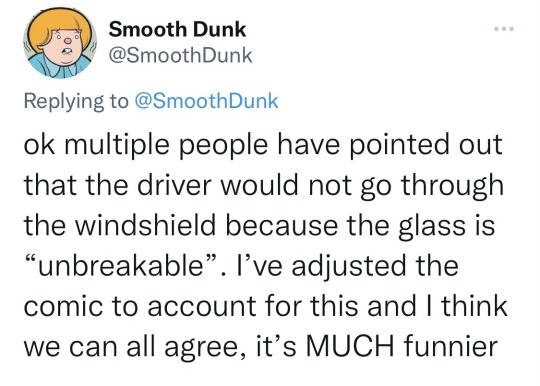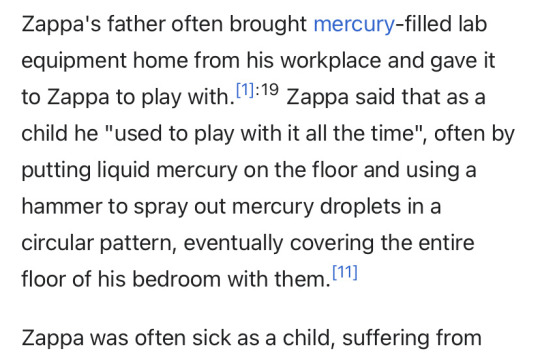Text
"Rent should be no more than 30% of household income" is a really funny and roundabout way to say "property owners as a class are entitled to 30% of gross wages"
6K notes
·
View notes
Text

seeeeecun 10th Anniversary Live "ルサンチマン・シティ"
メインビジュアルを制作いたしました
587 notes
·
View notes
Text
I think a lot of folks in indie RPG spaces misunderstand what's going on when people who've only ever played Dungeons & Dragons claim that indie RPGs are categorically "too complicated". Yes, it's sometimes the case that they're making the unjustified assumption that all games are as complicated as Dungeons & Dragons and shying away from the possibility of having to brave a steep learning cure a second time, but that's not the whole picture.
A big part of it is that there's a substantial chunk of the D&D fandom – not a majority by any means, but certainly a very significant minority – who are into D&D because they like its vibes or they enjoy its default setting or whatever, but they have no interest in actually playing the kind of game that D&D is... so they don't.
Oh, they'll show up at your table, and if you're very lucky they might even provide their own character sheet (though whether it adheres to the character creation guidelines is anyone's guess!), but their actual engagement with the process of play consists of dicking around until the GM tells them to roll some dice, then reporting what number they rolled and letting the GM figure out what that means.
Basically, they're putting the GM in the position of acting as their personal assistant, onto whom they can offload any parts of the process of play that they're not interested in �� and for some players, that's essentially everything except the physical act of rolling the dice, made possible by the fact most of D&D's mechanics are either GM-facing or amenable to being treated as such.*
Now, let's take this player and present them with a game whose design is informed by a culture of play where mechanics are strongly player facing, often to the extent that the GM doesn't need to familiarise themselves with the players' character sheets and never rolls any dice, and... well, you can see where the wires get crossed, right?
And the worst part is that it's not these players' fault – not really. Heck, it's not even a problem with D&D as a system. The problem is D&D's marketing-decreed position as a universal entry-level game means that neither the text nor the culture of play are ever allowed to admit that it might be a bad fit for any player, so total disengagement from the processes of play has to be framed as a personal preference and not a sign of basic incompatibility between the kind of game a player wants to be playing and the kind of game they're actually playing.
(Of course, from the GM's perspective, having even one player who expects you to do all the work represents a huge increase to the GM's workload, let alone a whole group full of them – but we can't admit that, either, so we're left with a culture of play whose received wisdom holds that it's just normal for GMs to be constantly riding the ragged edge of creative burnout. Fun!)
* Which, to be clear, is not a flaw in itself; a rules-heavy game ideally needs a mechanism for introducing its processes of play gradually.
4K notes
·
View notes
Text
Skeletor has forever destroyed our ability to come up with voices for skeleton characters.
26K notes
·
View notes
Text
“If a society puts half its children into short skirts and warns them not to move in ways that reveal their panties, while putting the other half into jeans and overalls and encouraging them to climb trees, play ball, and participate in other vigorous outdoor games; if later, during adolescence, the children who have been wearing trousers are urged to “eat like growing boys,” while the children in skirts are warned to watch their weight and not get fat; if the half in jeans runs around in sneakers or boots, while the half in skirts totters about on spike heels, then these two groups of people will be biologically as well as socially different. Their muscles will be different, as will their reflexes, posture, arms, legs and feet, hand-eye coordination, and so on. Similarly, people who spend eight hours a day in an office working at a typewriter or a visual display terminal will be biologically different from those who work on construction jobs. There is no way to sort the biological and social components that produce these differences. We cannot sort nature from nurture when we confront group differences in societies in which people from different races, classes, and sexes do not have equal access to resources and power, and therefore live in different environments. Sex-typed generalizations, such as that men are heavier, taller, or stronger than women, obscure the diversity among women and among men and the extensive overlaps between them… Most women and men fall within the same range of heights, weights, and strengths, three variables that depend a great deal on how we have grown up and live. We all know that first-generation Americans, on average, are taller than their immigrant parents and that men who do physical labor, on average, are stronger than male college professors. But we forget to look for the obvious reasons for differences when confronted with assertions like ‘Men are stronger than women.’ We should be asking: ‘Which men?’ and ‘What do they do?’ There may be biologically based average differences between women and men, but these are interwoven with a host of social differences from which we cannot disentangle them.”
— Ruth Hubbard, “The Political Nature of ‘Human Nature’“
(via gothhabiba)
Yes.
89K notes
·
View notes
Text
monopoly mermaid monday
35K notes
·
View notes
Text
The idea of english as a mother tongue is so strange to me, in my head english is how ppl communicate when there's no way in common to communicate, so english as a mother tongue sounds a bit like idk email as a mother tongue ykwim? Like english to me feels like the stuff that's used to fill the empty spaces between languages
83K notes
·
View notes
Text
They should add a feature to this website where you can browse someone’s blog by inputting a short phrase and then a search algorithm would retrieve all the posts containing it
60K notes
·
View notes
Text




Thoughts of a newly resurrected girl
4K notes
·
View notes










